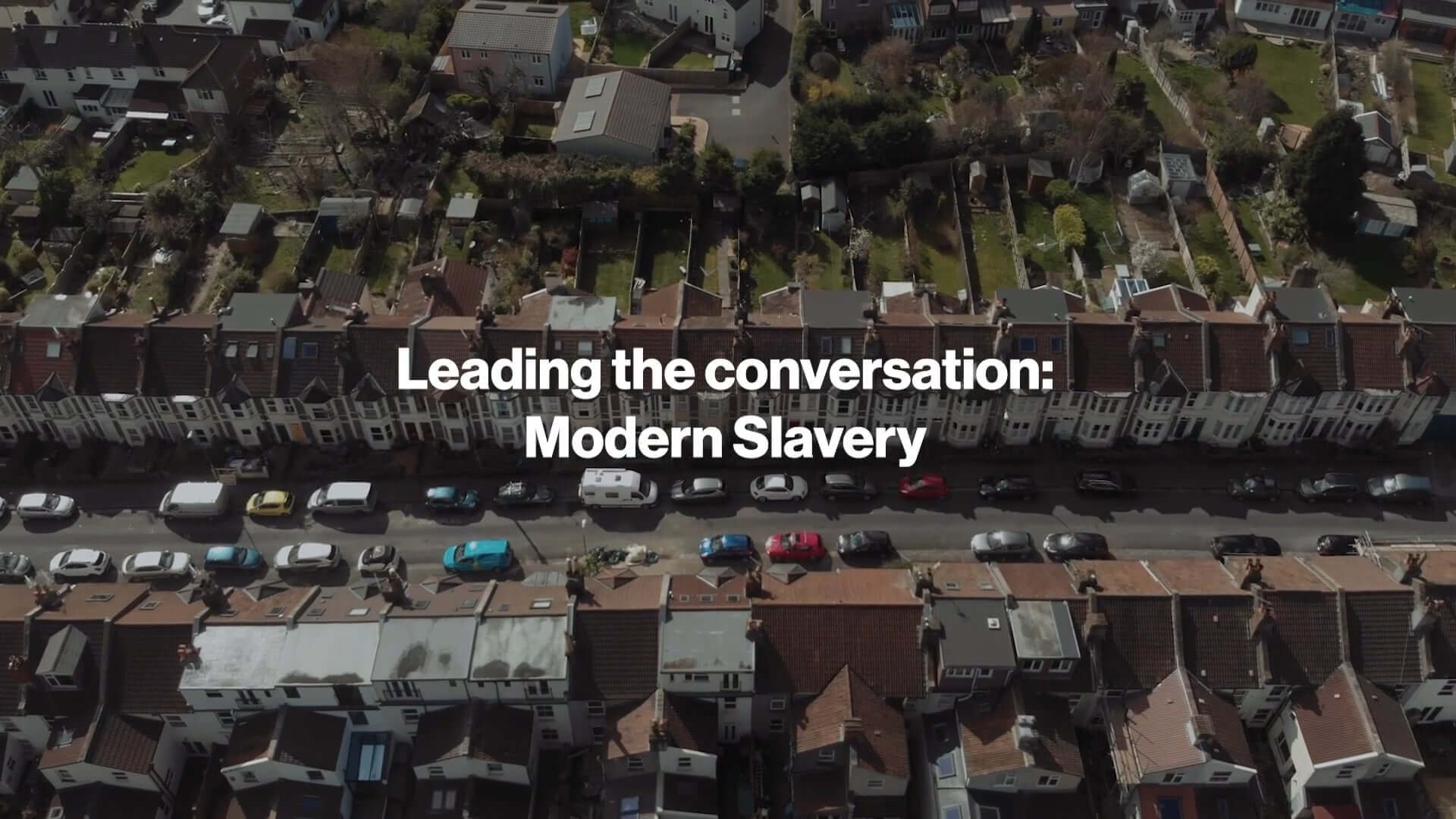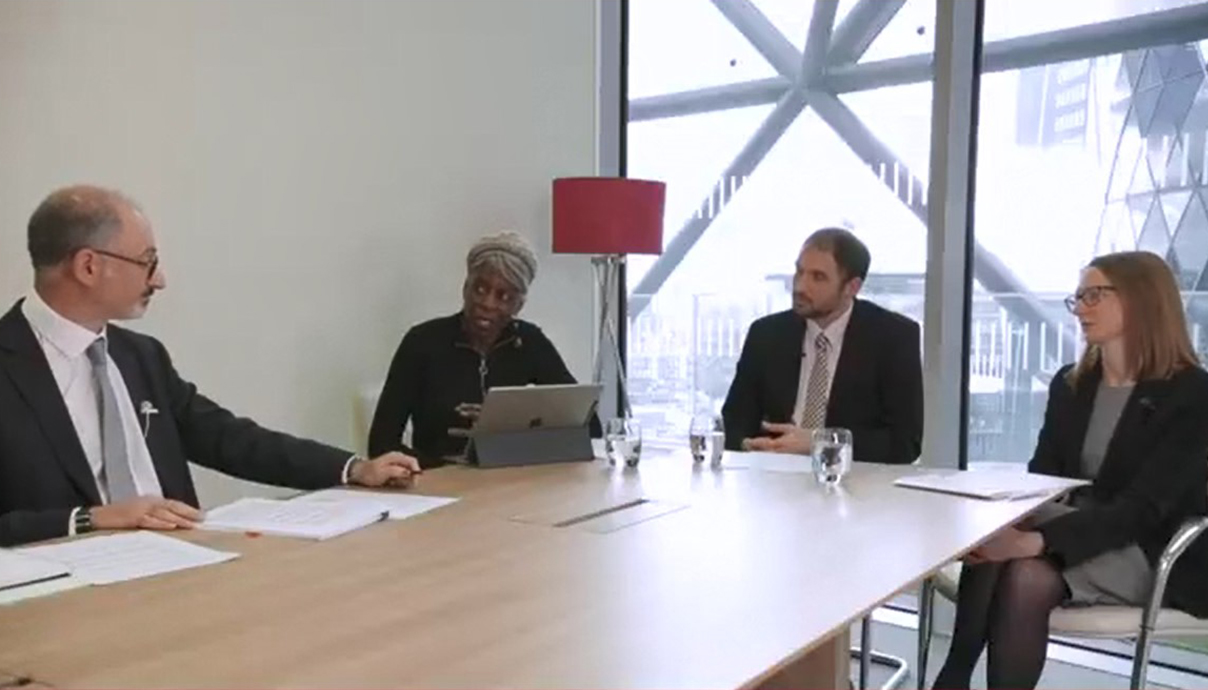
Modern Slavery Act
Modern slavery is the world's second largest form of organised crime and a growing challenge thanks to a mix of armed conflict, climate change and the global pandemic.
The Modern Slavery Act requires in scope organisations to produce, sign, and make public a slavery and human trafficking statement every year that sets out the steps that were taken the previous year to combat modern slavery in the organisation and also its supply chains.
Addressing modern slavery in practice
Sadly, severe human exploitation is a very real and longstanding issue in many parts of modern society. All organisations must be vigilant to the risks in order to spot warning signs early and manage cases compassionately and within the limitations of the law. In this short video we highlight some of the things to look out for and signpost to helpful resources. If you’d like to discuss your obligations under the Modern Slavery Act, please get in touch.

The legal requirements can apply to organisations based outside the UK as well as to those in the UK. We can help. We are experienced on:
- advising whether an organisation is required to publish a slavery and human trafficking statement or not
- the content of a statement
- how to publish a statement
Our experience since the Modern Slavery Act first became law has enabled us to develop a suite of templates, available at a fixed charge, to help clients comply with their legal duties while controlling costs.
We advise a diverse range of organisations in the public and private sectors including some of the world's leading brands.
The global nature of modern supply chains and complex organisational structures can make complying with the Modern Slavery Act challenging.
Frequently asked questions
A: Modern Slavery is the term used to encapsulate the crimes of slavery, servitude and forced or compulsory labour; and human trafficking (whether the person knew they were trafficked or not).
A: Any organisation wherever located that supplies goods or services in the UK and has a turnover of at least £36 million a year. Turnover includes that of subsidiaries. Wherever they are located.
- The organisation's structure, its business and its supply chains
- The organisation's policies and processes to prevent slavery and human trafficking
- Areas where there's a risk of slavery and human trafficking in the organisation and its supply chains
- What the organisation has done to assess and manage that risk
- How effective the organisation's slavery measures have been
- Details of staff training
A: Keep it on your homepage accessible via a prominent link. Interested stakeholders should be able to monitor the progress of the organisation over time.
Our resources
Leading the conversation on the Modern Slavery Act
"With Baroness Young of Hornsey, a Crossbencher in the House of Lords and campaigner against Modern Slavery; Dr Alexander Trautrims, a Lecturer in Supply Chain and Operations Management at Nottingham University Business School, we explore how businesses should approach their internal work in producing their slavery and human trafficking statements going forward, and the positive impact that working closely with supply chains has on businesses."Watch now

Guide to the Modern Slavery Act
Statement requirements
"We outline the essential information you need to know to establish if your organisation is required to produce a Modern Slavery Statement and how to approach doing so."Read more

Modern Slavery Act compliance
"Our suite of template documents gives you the structure and consultation to develop your own practices and documents."Find out more

Section 54 of the Modern Slavery Act 2015 guide
"Our detailed guidance note explains who Section 54 applies to, what you need to do and when you need to do it by."Read our guide

Key contacts

Raymond Silverstein
Partner

Emma Grant
Knowledge Director
You may be interested in...
Legal Update
The Modern Slavery Act 2015
Legal Update
UK and EU sustainability regulations: 2026 milestones, EPR and DRS updates
Opinion
Addressing worker exploitation: Essential guidance for HR
Legal Update
Updated Modern Slavery Act Transparency Guidance: Key obligations and steps for businesses
Opinion
Forced labour goods: a landmark decision
Legal Update
ESG and the path to net zero: Construction industry considerations
Opinion
Modern slavery in the care sector – how employers can manage risks
Press Release
Browne Jacobson collaborates with The GLAA and University of Nottingham to tackle modern slavery and human trafficking
Legal Update
Modern Slavery and the NHS – new challenges on the horizon for NHS bodies and their suppliers
According to a report published by the Financial Reporting Council in April, modern slavery generates an estimated US$150 billion annually and encompasses 40 million people in slavery globally.
Legal Update
A new Modern Slavery Bill
Legal Update
Employment and Workforce Survey 2021: Gender and Race Equality – Future Changes Ahead?
The issue of equality has remained high on the agenda during the pandemic. The #MeToo and Black Lives Matter movements have increased awareness of gender and race equality issues across all of society. Our survey indicated there was still a significant number who were making changes either for gender or race or both.
Legal Update
The Modern Slavery (Amendment) Bill is published
The Modern Slavery (Amendment) Bill recently started its journey through Parliament. Find out more.
Legal Update
Your anti-modern slavery obligations – a reminder that even the biggest companies are facing challenges…
It has recently been reported that a well-known UK law firm has sent British American Tobacco (BAT) a pre-action letter alleging forced and child labour on behalf of 350 child labourers working on tobacco crops in Malawi.
Legal Update
Final Report on review of the Modern Slavery Act 2015 laid in Parliament
On 22 May 2019 the Final Report of the independent review of the Modern Slavery Act 2015 (MSA) was laid in Parliament.
Legal Update
Modern slavery - your risks and duties as the next deadline approaches
Modern slavery is the fastest growing organised crime in the world. The UK is far from immune being a leading country of destination.
Legal Update
Modern Slavery Act 2015 update – proposed changes to section 54 requirements
Section 54 of the Modern Slavery Act 2015 now requires any commercial organisation which supplies goods or services in the UK and has an annual turnover of £36m or more to publish an annual slavery and human trafficking statement.
Legal Update
Modern Slavery Act - reporting obligation
What should your employees do if an incident of modern slavery is identified within your organisation or its supply chains?
Legal Update
Are you ready for the Modern Slavery Act 2015? ‘Commercial Organisations’ analysis
What “commercial organisations” does the MSA apply to?










